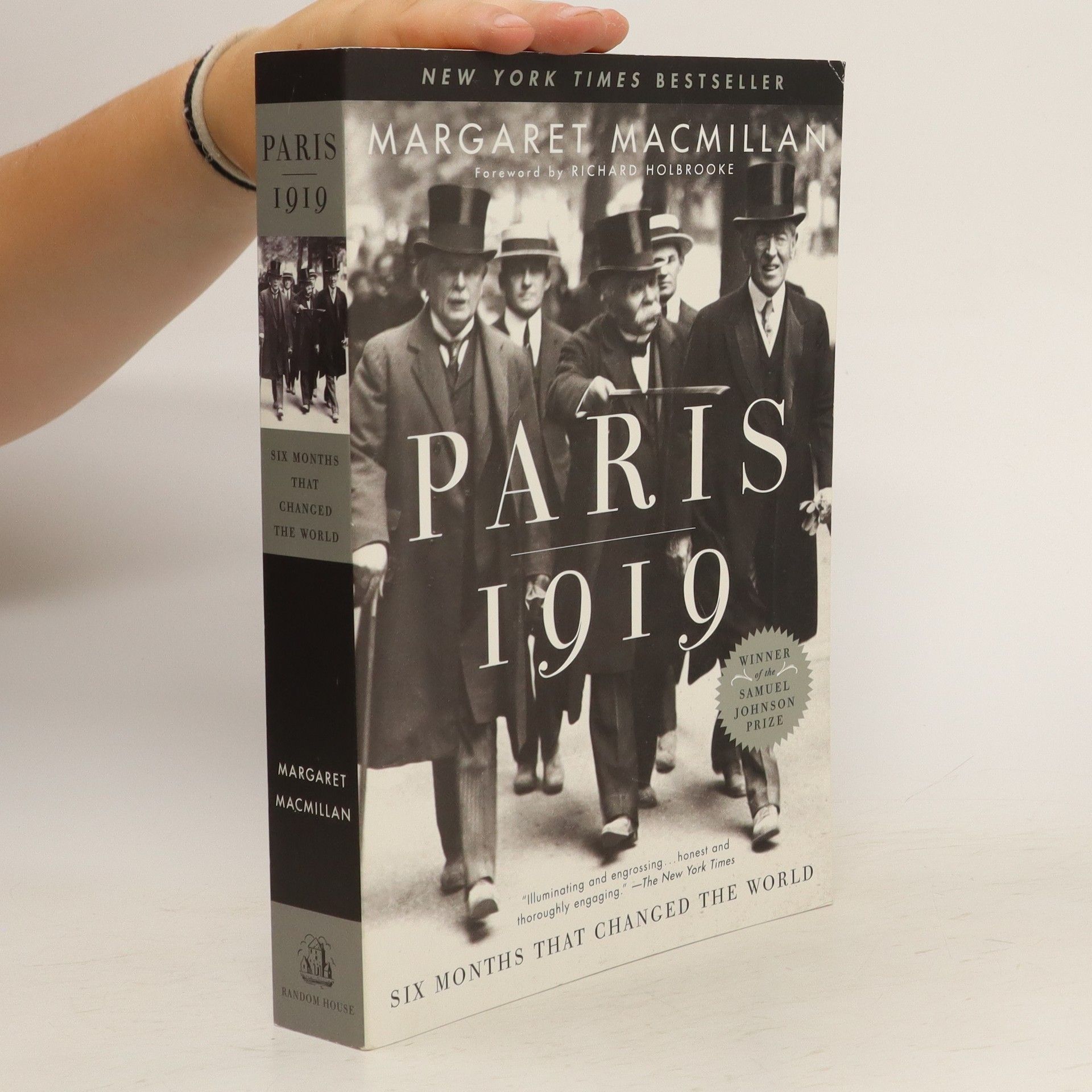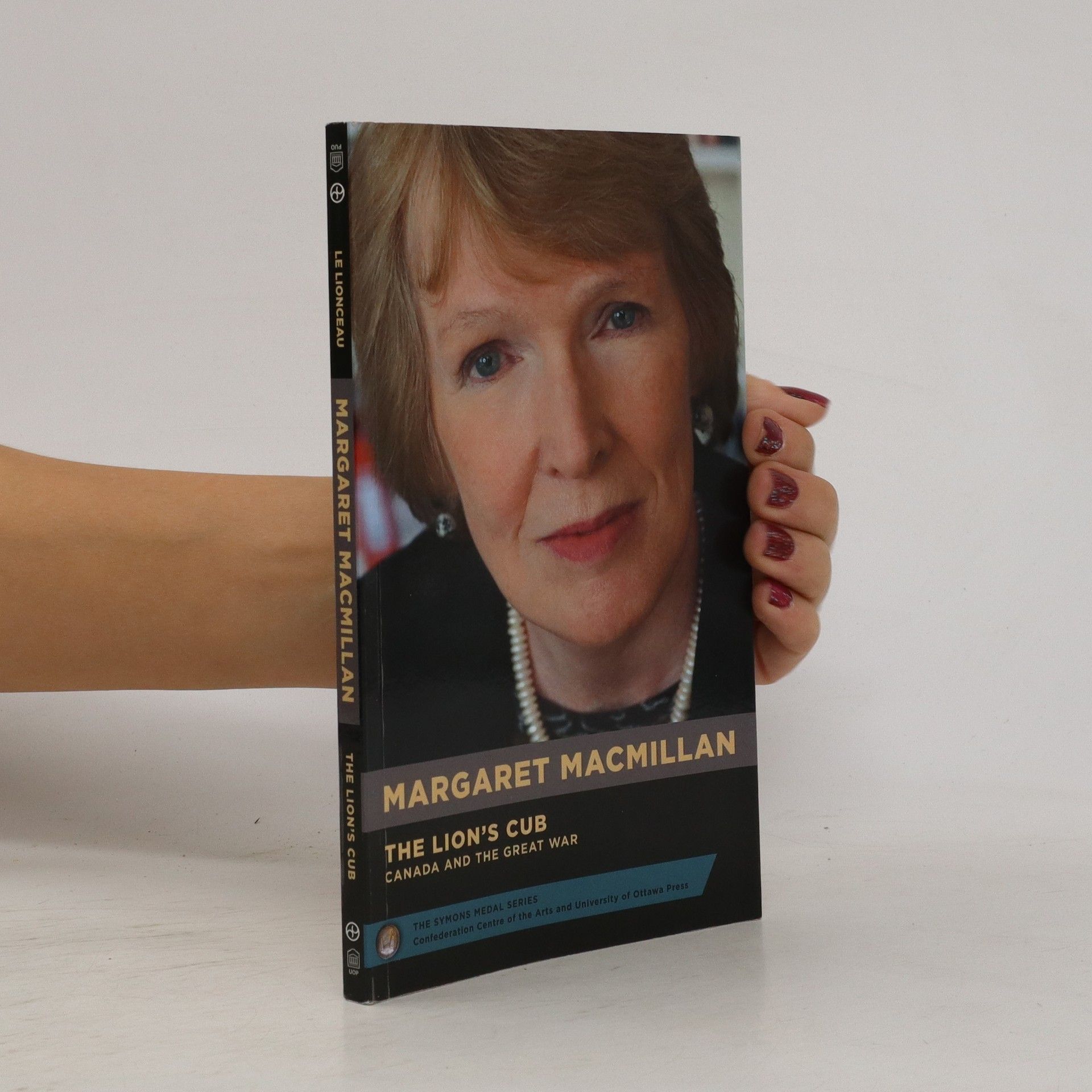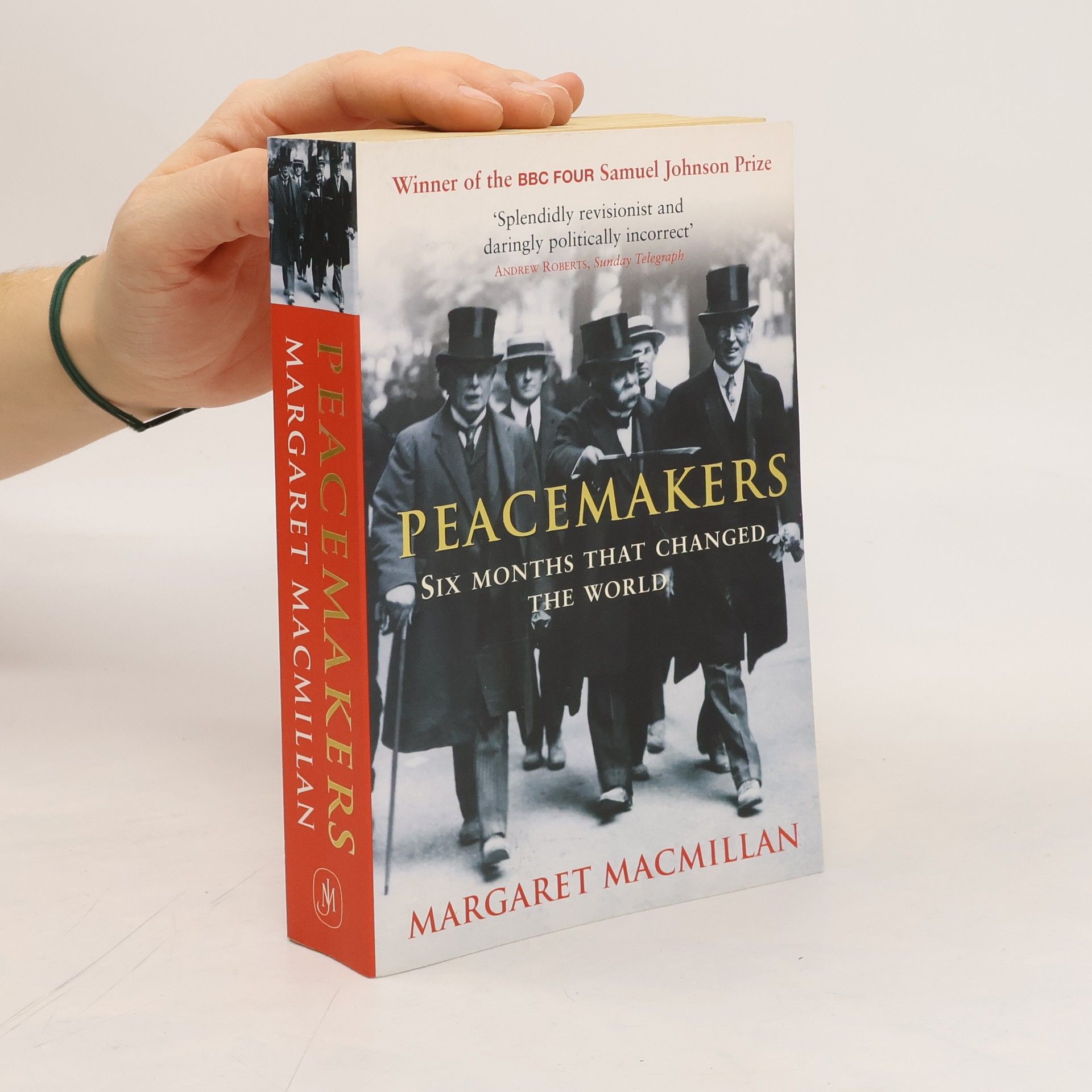War
- 336 pages
- 12 hours of reading
How the human history of conflict has transformed the world we live in - for good and evil.
Margaret MacMillan is a respected historian and professor whose work focuses on international relations and history. Her writings delve into the complex causes of war and peace, examining how past events shape the present world. Her analytical style and ability to connect historical parallels with current issues make her a significant voice in historical scholarship. Readers will appreciate her deep insights into human nature and political processes.







How the human history of conflict has transformed the world we live in - for good and evil.
"War, the instinct to fight, is inherent in human nature; peace is the aberration in history. War has shaped humanity, its institutions, its states, its values and ideas. Our very language, our public spaces, our private memories, some of our greatest cultural treasures reflect the glory and the misery of war. War is an uncomfortable and challenging subject not least because it brings out the most vile and the noblest aspects of humanity. Margaret MacMillan looks at the ways in which war has shaped human history and how, in turn, changes in political organization, technology, or ideologies have affected how and why we fight. The book considers such much-debated and controversial issues as when war first started; whether human nature dooms us to fight each other; why war has been described as the most organized of all human activities and how it has forced us to become still more organized; how warriors are made and why are they almost always men; and how we try to control war. Drawing on lessons from a sweep of history, from classical history to modern warfare, and from all parts of the globe, MacMillan reveals the many faces of war--the way it shapes our past, our future, our views of the world, and our very conception of ourselves"-- Provided by publisher
Esteemed Canadian writer and historian Margaret MacMillan considers the paradoxical impact the First World War has had on Canada in her 2018 Symons medal address, The Lion's Cub.
What difference do individuals make to history? Are we all swept up in the great forces like industrialisation or globalisation that change the world? Clearly not: real people-leaders in particular-and the decisions that they make change our lives irrevocably, whether in deciding to go to war or not, decisive tactical choices made in the heat of battle or changing the economic fortunes of countries.So if people-explorers, rulers, politicians, campaigners-make a difference in history, what is the role of personality? What difference did, for example, Nixon, Franklin Delano Roosevelt, Montaigne or Stalin make? And what about less visible but influential people such as Edith Durham in the early twentieth century in Eastern Europe or Fanny Parks in nineteenth century India?Is it possible to find or discern patterns in different types of personality-tyranny, risk-taking, curiosity, reluctance to act? This pithy book interrogates the past to ask very big questions about the role of individuals and their behaviour. It really matters: the personalities of the powerful can affect-for better or worse-millions of people and the future of countries. Like all the best history, this book colours the way you see not only the past but the present.
WORUM GEHT ES? Wie der Kriegsausbruch 1914 war auch das Kriegsende 1918 ein Schlüsselereignis des 20. Jahrhunderts. Der Zusammenbruch der vier größten Reiche Europas führte zur folgenreichen Neuordnung des Kontinents im Versailler Friedensvertrag von 1919. In ihrem preisgekrönten Buch schildert die Historikerin Margaret MacMillan anschaulich das Geschehen rund um die Vertragsverhandlungen: die Differenzen der Siegermächte, die Rachegelüste der Franzosen, die Annexionswünsche der Engländer, die missachteten Erwartungen der Kolonialvölker, die demütigende Behandlung der Deutschen, das Geschacher um den Nachlass der Verlierer, schließlich der »Diktatfrieden«, der Deutschland die Alleinschuld am Kriegsausbruch aufbürdete. MacMillan würdigt das Bemühen der Sieger um eine dauerhafte Friedensordnung, zeigt aber auch deutlich, wie sehr die schließlich in den Zweiten Weltkrieg mündenden Konflikte bereits im Versailler Friedensschluss angelegt waren. WAS IST BESONDERS? Was Christopher Clarks Buch für die Vorgeschichte des Ersten Weltkriegs geleistet hat, leistet MacMillans Buch für die Nachgeschichte. Die erste große Gesamtdarstellung des Versailler Friedensvertrags gilt in der angelsächsischen Welt längst als Standardwerk. Brillant erzählt, fesselnde Lektüre. WER LIEST? • Die Leser der Bestseller von Christopher Clark und Herfried Münkler • Alle, die sich für Weltkriegsgeschichte interessieren
The First World War followed a period of sustained peace in Europe during which people talked with confidence of prosperity, progress and hope. But in 1914, Europe walked into a catastrophic conflict which killed millions of its men, bled its economies dry, shook empires and societies to pieces, and fatally undermined Europe's dominance of the world. Beginning in the early 19th century, and ending with the assassination of Archduke Franz Ferdinand, historian Margaret MacMillan uncovers the huge political and technological changes, national decisions and - just as important - the small moments of human muddle and weakness that led Europe from peace to disaster.
The past is capricious enough to support every stance - no matter how questionable. In 2002, the Bush administration decided that dealing with Saddam Hussein was like appeasing Hitler or Mussolini, and promptly invaded Iraq. Were they wrong to look to history for guidance? No; their mistake was to exaggerate one of its lessons while suppressing others of equal importance. History is often hijacked through suppression, manipulation, and, sometimes, even outright deception. MacMillan's book is packed full of examples of the abuses of history. In response, she urges us to treat the past with care and respect.
MacMillan makes history come to life in one of the most important subjects today: the relationship between the United States and China and the historic meeting of Richard Nixon and Mao Tse-tung in 1972 that ultimately laid the groundwork for the relationship between the two nations.
Na 'de oorlog die een einde aan alle oorlogen moest maken', kwamen mannen en vrouwen uit de hele wereld in Parijs bijeen voor de vredesbesprekingen. De drie grote leiders uit die tijd, Woodrow Wilson, David Lloyd George en Georges Clemenceau, vormden het hart van de conferentie, maar duizenden anderen kwamen ook: koningen en ministers met hun schare adviseurs; journalisten en lobbyisten voor een verscheidenheid aan belangen, van de Armeense onafhankelijkheid tot gelijke rechten voor vrouwen. Parijs 1919 is het verhaal over hen die de wereldkaart opnieuw intekenden. Zij legden de grenzen van Rusland verder oostwaarts, ze lieten Polen opnieuw geboren worden, ze worstelden met de problemen rond Kosovo, de Koerden en de joodse staat. Vaak is geschreven dat er een rechte historische lijn te trekken is van de drie wereldleiders in de Spiegelzaal in het paleis van Versailles naar de Duitse inval in Polen in 1939. Margaret MacMillan laat echter zien dat de geschiedkunde dezez mannen niet altijd juist heeft beoordeeld. Zij werden afgerekend op fouten die later werden gemaakt. Ze probeerden rechtvaardig te zijn, maar hun doelstellingen konden niet met diplomatieke middelen worden bereikt. Parijs 1919 is onmisbare literatuur voor hen die de wereld van vandaag willen begrijpen.
Pohled britské historičky Margaret MacMillanové na pařížskou mírovou konferenci (1919), jež zásadně proměnila do té doby existující svět, je nejen nový a překvapivý, ale v mnoha ohledech také šokující. Způsob, jakým dokumentuje pohnutky, úvahy a činy „mírotvorců“ -- tedy mužů, kteří sami vzali osud světa do vlastních rukou a v nejlepší víře ve své počínání pak bezděky přivedli svět k další světové válce --, bohatství pramenů a snaha vysvětlit dopodrobna kroky politiků a důvody pro vznik nových států i jejich touhy po sebeurčení přinesly autorce mimořádný čtenářský ohlas (kniha vyšla ve Velké Británii v pěti vydáních v rozmezí tří let!) a získala také dvě britská prestižní ocenění za nejlepší díla z oblasti historie. Práce Margaret MacMillanové je nepochybně zcela ojedinělá a pro každého, kdo se zajímá o historii, nepostradatelná.... celý text